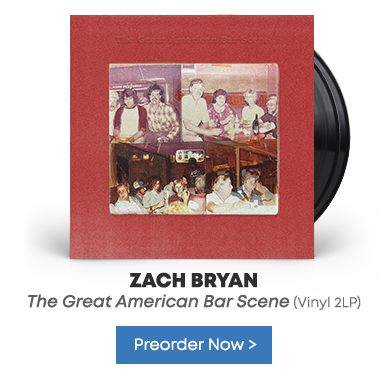The enigmatic Kate Bush possesses a penchant crafting strong-willed songs that feel delicate and of another universe. Of late, her recording output has become more sporadic, but no less sharp. Her songs can be journeys into twisted fairy tales or imaginative, metaphorical looks at the real world. A bit Gothic, and often largely symphonic, Bush's tunes often double as mini-novels rich with literary references. And while her music has long been unavailable on vinyl, that changes now, with reissues of four separate LP box sets (as well as two different multi-disc CD sets). In all, 18 LPs are spread amid the four packages. The fourth volume, a must-buy for fans, houses Bush rarities and covers of other artists' material. For casual listeners, a deep dive into her catalog can initially prove daunting. To help, here are five must-hear Bush songs that will no doubt have you craving more.
"Wuthering Heights"
Kate Bush's 1978 debut single, and her biggest hit to date, introduced the world to mysterious artist who took inspiration from the Emily Brontë novel of the same name. Don't be skeptical of Bush's literary references. The tale, one of Gothic romance and heartbreak, is ghostly and passionate, told from the point of view of a woman after she has died, now forever trapped outside her would-be lover's window. Those familiar with Brontë's work will appreciate Bush's parsing of a never-resolved romance and the way it can forever haunt both parties. But one needn't have finished the book – or seen any of its film interpretations – to feel the drama in Bush's theatrical vocals. Alternately wispy and hearty, Bush comes across as a human torrent of longing, pain, and rage, with the stately piano and organ becoming wilder as the tragedy unfolds.
"The Man with the Child in His Eyes"
There are many reasons to marvel at Bush's second single. In comparison to the busy "Wuthering Heights," this fragile symphonic number feels on the surface more simple and more direct. Yet it also teems with mystery. It gets told from the point of view of a young woman who is in a relationship with an older man. The narrator sees the child in him. Others see something doomed. "They say, ‘No, no, it won't last forever,'" Bush sings in the second verse, her soft voice fit for a choir. The whole song seems delicate, as if it may blow away on a whim, and captures a fear that the comforting moment will not last. Now, here's another reason to love the song: It was penned when Bush was just 13.
"Running Up That Hill (A Deal with God)"
One of Bush's most successful and best-known songs of the 80s, "Running Up That Hill (A Deal with God)" certainly feels of the era. Significantly less eccentric than much of her earlier work, the cut shows just how malleable Bush's voice can be. Here's, she's relatively stern and direct, matching the steady, heavily processed rhythms that push the track forward. A synthesizer provides one of the hooks, warbling its way in and around Bush's vocals. And there's nothing slight about the message, which stands as a poignant and resigned statement about romance. Bush pleads for a deal with God, hoping a higher power can allow the sexes to see another from the other's perspective. If not, our narrator feels love will always reflect the sensation of "running up that hill."
"The Sensual World"
Two versions of this 1989 song exist, and both are striking. For our purposes, stick with the original rather than the 2011 take. Inspired by James Joyce's novel Ulysses, Bush originally intended the cut to feature words entirely lifted from the book – namely, the closing soliloquy of character of Molly Bloom. The Joyce estate said no, at least until 2011. No matter. The song more than embodies its title. "You don't need words, just one kiss, then another," Bush sings, her voice just above a heated whisper. Background vocals howl in ecstasy, and uilleann pipes lend a mystical aura. Bold rhythms heighten the lust, punching through the choral accoutrements to give the track a human feel. In a pop world in which songs about love and sex are relatively commonplace, Bush instead focuses on the joy of pleasure, even delaying it in the final moments with a coy "not yet."
"Misty"
Found nestled on Bush's most recent album, 2011's 50 Words for Snow, "Misty" remains a bit magical and a bit spooky and, like the best of her work, leaves us with plenty to ponder as it fades away. A dark tale of innocence lost, the story will be slightly familiar to those versed in Raymond Briggs' book The Snowman, about a wintery, childish creation that springs to life. Bush's take, however, traffics much more heavily in loneliness and adult temptations. Here, a woman builds a snowman, and the creature awakens to come inside her home via her window and lies beside her in bed. While the moment stands as the narrator's greatest accomplishment, anyone who's seen Frozen knows what happens a snowman meets warmth. Her love melted, Bush finds plenty of hurt in the absurdist fantasy: "Sunday morning/I can't find him/ The sheets are soaking/ And on my pillow/ Dead leaves." The stark, ghastly piano tells us how to feel: crestfallen. Welcome to Bush's world.
16th Nov 2018




































